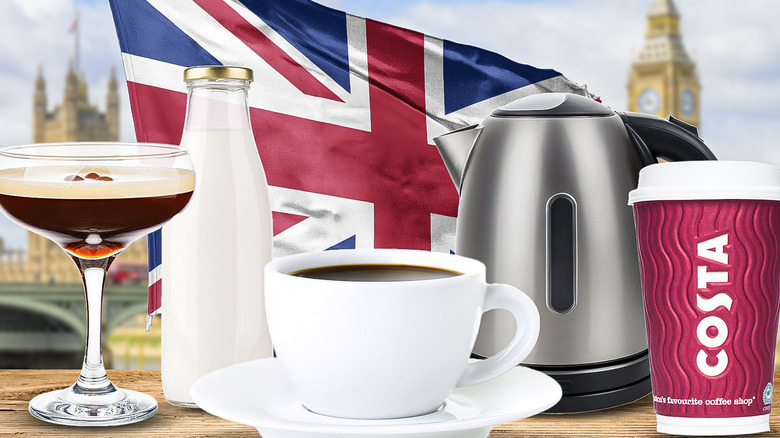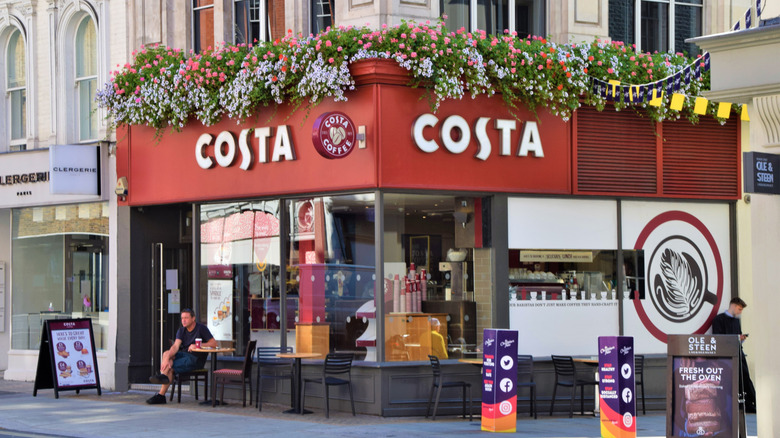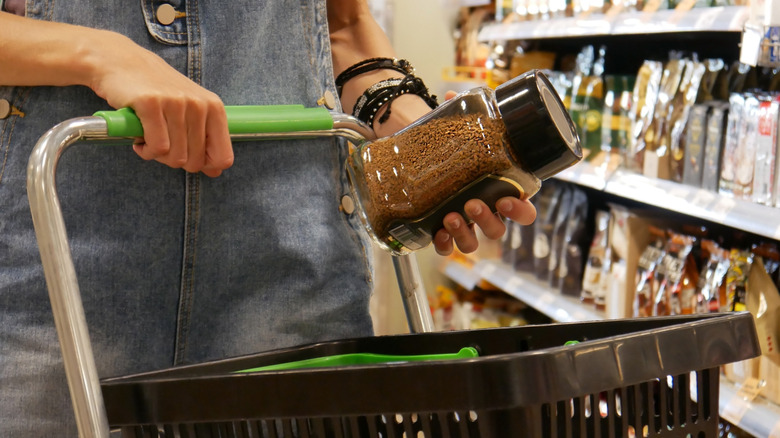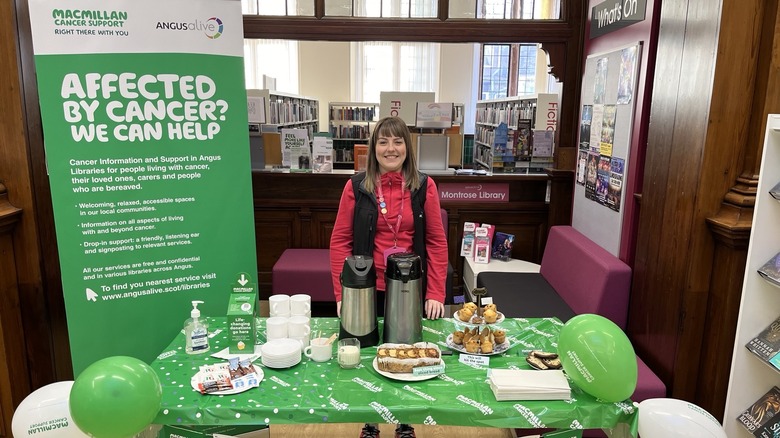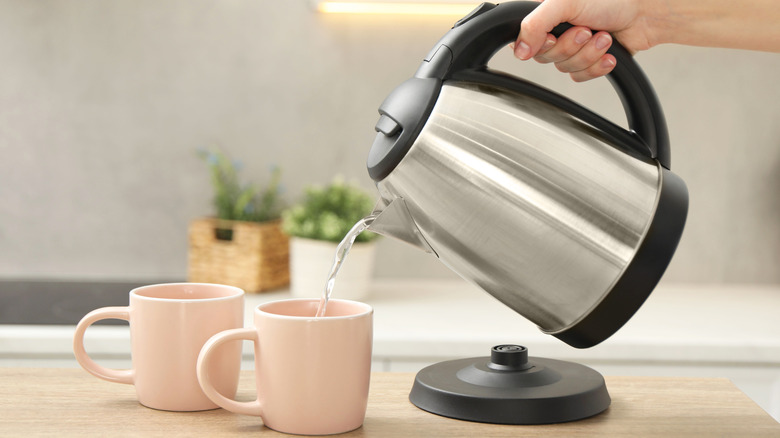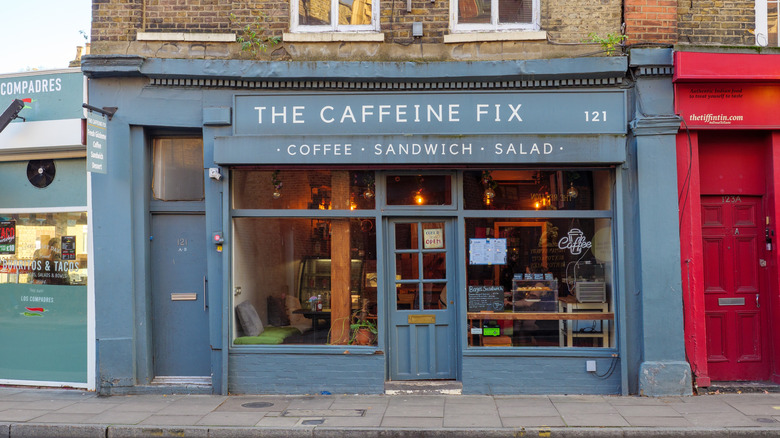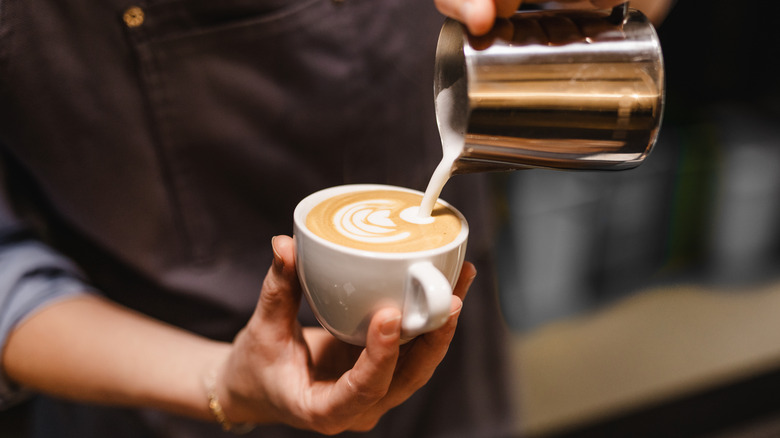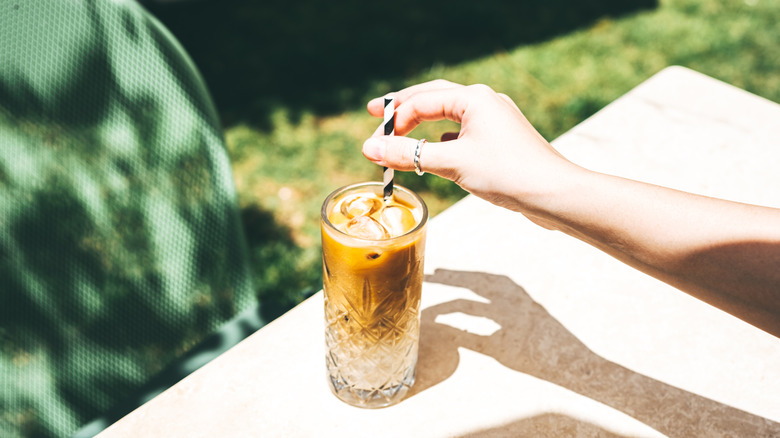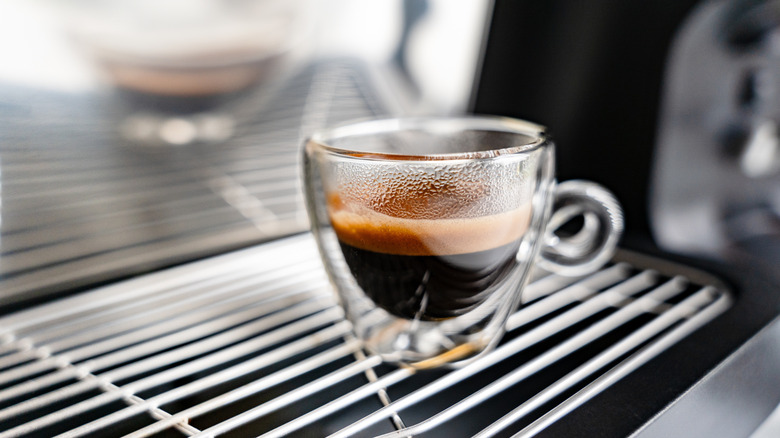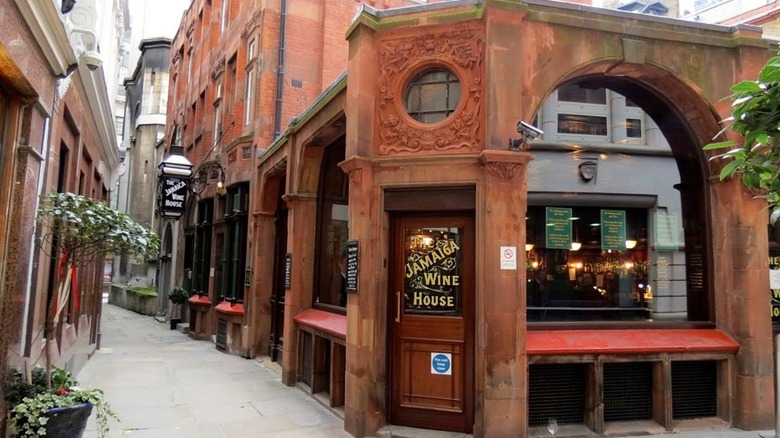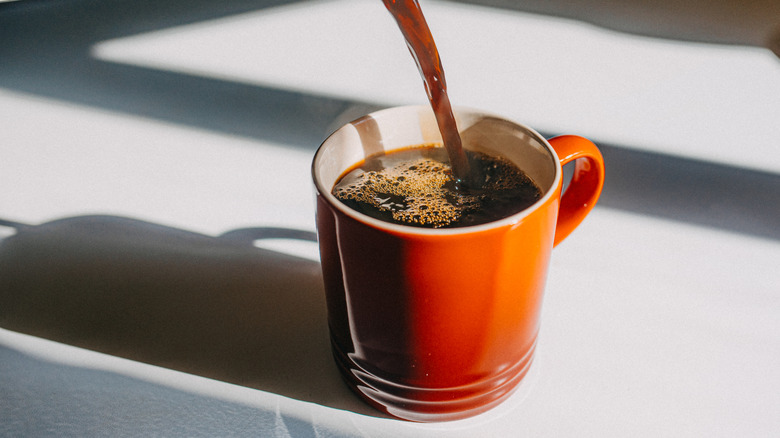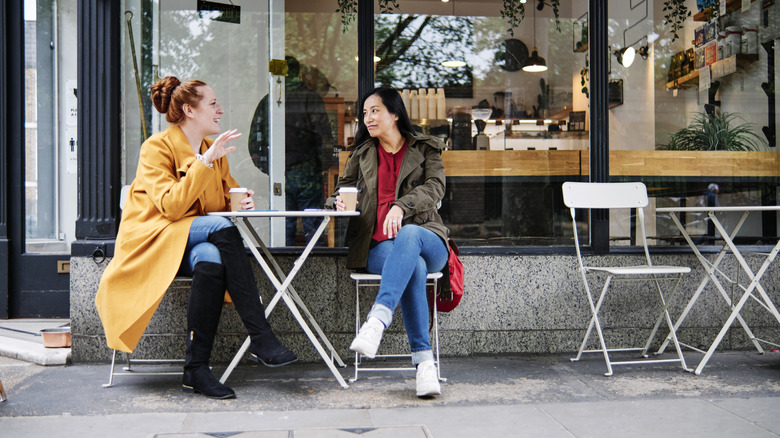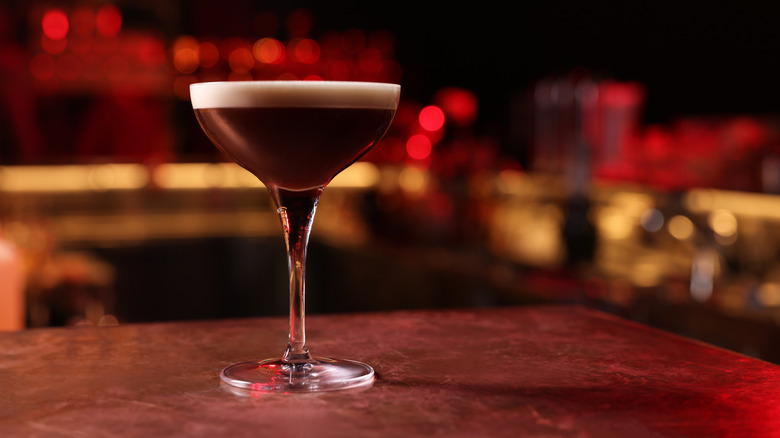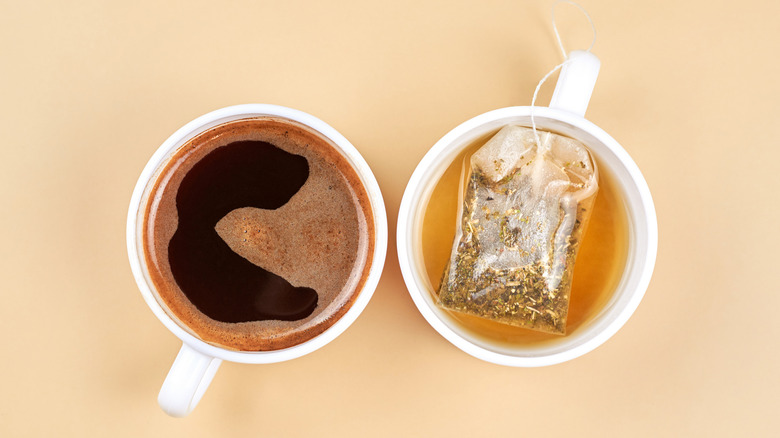14 Fascinating British Coffee Traditions
When it comes to hot beverages, many people assume that Britain is a nation of tea drinkers. While tea is still much-loved by many, British people have long embraced coffee, and coffee shops have become commonplace on high streets. Tea may be tied to the history of the British Isles, but coffee has carved out a unique place in our culture. As a coffee lover who has lived in Britain all my life, it is fascinating to look at our traditions regarding this drink and how we do things a little differently compared to the rest of the world.
Here, we'll embrace the quirks, customs, and evolution of coffee over the years. I hope along the way, you find some surprises about our relationship with coffee and how it intertwines with our everyday lives. Whether you're reading this with a nice steaming brew or just fascinated by British coffee culture, join me as we look at 14 fascinating British coffee traditions.
Britain is a nation of coffee drinkers
The perception of Britain as a nation of tea drinkers remains strong. As a Brit, you'll often see it mentioned in American TV shows and films. It's a perception that is not quite the reality. In the last few years, there has been a shift with coffee overtaking tea as the nation's favorite hot drink. If you work in a British office, workers are much more likely to have a coffee break than a tea break. Perhaps it's the need for that caffeine perk, but tea is now in second place, and I think it'll only ever slip further behind.
The history of tea is complex and closely linked to the British Empire, but a huge social change also happened during World War II when the British government bought huge stocks of tea and made sure it was available through rationing. It became a symbol of the war effort and British spirit. Over time, this association with the war and the British Empire grew weaker. Coffee became more widely available and grew in popularity and quality. In Britain now, there is a clear generational shift with older people often drinking tea, whereas younger generations from millennials and below are more likely to have coffee. However, stereotypes remain strong, so I don't expect the perception that Britain is a nation of tea drinkers will go away anytime soon.
We have our own version of Starbucks
There are some American-born companies that dominate markets in Britain. Examples would be McDonald's for fast food, Coca-Cola for soft drinks, and Microsoft/Apple for computing. While Starbucks is still widely popular in Britain, it hasn't quite managed to claim the top spot when it comes to coffee chains. Costa Coffee has over 2,500 locations, well over double that of Starbucks. Costa Coffee started in 1971 with the Costa brothers, first opening in Newport Street, London.
As the company states, they are proudly still the nation's favorite coffee shop and offer all the classic drinks you'd expect, along with more modern offerings. Along with there is a food selection geared towards British tastes such as toast and cake. However, the story of Costa has gone the way of many other British brands, such as Cadbury. The company is now American-owned by the aforementioned Coca-Cola. With that influence, the company now has many stores across Eastern America and it will be interesting to see if they can challenge Starbucks in the global market.
The British love instant coffee
Many countries around the world would swear by drip coffee, French press, or a coffee machine. Britain is a little different. Here, we have a love affair with instant coffee, with 80% of households buying it. That may surprise many coffee lovers who may turn their noses up at the instant version of the drink. However, there is no doubt Brits love the convenience of having a coffee in a couple of minutes with no fuss and minimal expense. All that you need is a teaspoon of granules, a sweetener of choice, and a splash of hot water. Add milk to your preference, and you're done.
Whereas other countries may prefer more intricate brewing methods, instant coffee aligns with the British love for practicality. Head to any British supermarket, and you'll find a huge range of instant coffees with differing flavors and strengths. The coffee pod and bean selection won't be nearly as large. That being said, artisan coffee shops and pod machines are growing in popularity, especially among younger generations. However, given how much it dominates the market, instant coffee will be the choice for the majority of consumers for many years to come.
One British charity offers cancer support over coffee
MacMillian is a wonderful British charity that works to support those dealing with the effects of cancer, whether that be emotional support, health care, finances, or information. One of its initiatives is the Macmillan Coffee Morning. Through the social love of coffee, it invites people to come along, share stories over a hot brew, and donate to the charity. As well as coffee, others may bring cakes and other food for people to share.
While the charity usually allocates one day in the year to promote the event, coffee mornings can be hosted at any time by anyone wanting to support the cause. They can be hosted in workplaces, village halls, or anywhere you can get a community together. It's a heartwarming example of how a hot brew can be a social tool in Britain to get people together. They have been going since 1990 and raise millions each year. It's a simple yet beautiful idea that can come in all shapes and sizes.
We always use a kettle
If you step into any British kitchen or office space, you're almost certain to find an electric kettle. We have long since moved on from stovetop kettles or any other method of heating up water. In fact, many of us find it astonishing that Americans don't have the same love affair with the electric kettle. They offer speed and convenience, with you able to make tea or coffee in a matter of minutes. For many British people, the humble kettle is an indispensable part of the kitchen as we couldn't be without it and the coffee it provides.
There are a few reasons for this, such as Britain's higher voltage meaning water boils quicker. Our love affair with tea also meant we were ready to embrace the electric kettle as soon as it was invented. There are other reasons here, too, such as America embracing coffee machines and microwaves. For Brits, the sound of a kettle clicking on has become synonymous with a hot drink being on the way. In an office, that sound may often be met with the people around you asking if you can make them a cup as well.
We love independent cafes
As we've mentioned, coffee chains are highly popular in Britain and will often dominate the high streets. However, there's a special place in our hearts for independent cafés — often affectionately referred to as "caffs." Just like pubs being at the heart of their communities, a café can also serve the same purpose. These places can be hubs where locals go to catch up, work, or just relax with a drink. These caffs will often be in the middle of built-up housing, often converted on the ground floor from an old existing house.
These cafes will have their own unique charm and personality. Often family-run, they are away from tourist spots and don't have the foot traffic or revenue potential to support one of the big chains. There are still plenty of independent shops on the high street, but these often look to be more modern and offer a more artisanal coffee experience. These local caffs give you a sense of community that chains can't replicate. Of course, independent cafes can still be popular in other countries, but British caffs can offer locals a much-needed social connection in this digital age.
We don't use cream in our coffee
When I first heard that an American wanted coffee with cream, I was very confused. In Britain, cream is something that you either cook with or put on a dessert, such as scones or puddings. The thought of using it in a coffee was so alien to me that it just didn't make sense. I'm sure there are those in Britain who now enjoy coffee in this way, but I've personally never known anyone to take their coffee with cream. Whether in coffee or tea, British people will use milk.
There are generally four options of dairy milk: whole, semi-skimmed, 1%, and skimmed. Each one has an ever-decreasing amount of fat, and the further you get to skimmed, the less creamier it gets. Coffee shops often only offer whole or semi-skimmed, as they are the two tastiest options. There are usually non-dairy milk options for those who are vegan or have allergies, but those types of dairy milk still dominate. As we'll talk about further, Britain has more understated coffee traditions. Milk gives a smooth and mellow flavor without dominating the coffee. Many Brits would find coffee with cream to be too rich or heavy, especially when paired with food.
Iced coffee isn't very popular
In many countries, iced coffee has become a popular drink, especially during the warmer months. It's a trend in Britain that has yet to catch on. Large coffee chains do offer iced lattes and frappes, but they are far from the go-to choice. Instead, we tend to stick to hot drinks, regardless of the weather. You may even commonly hear that a hot drink can cool you down, even if the evidence for that is thin at best. This preference may come down to a few factors.
As we've seen, Britain remains quite traditional with its drink choices and has a culture that has long revolved around warm and comforting drinks. And, of course, our weather is notoriously unpredictable. Rarely have I experienced a day when I thought it was too hot for coffee, even in the middle of the day. Coffee just warms your soul, and that's often what we're looking for. Another factor is practicality. Iced coffee takes more time to prepare and usually, we like our coffee instantly. There also isn't as much access to ice, with few having ice makers in their fridge freezers. Iced coffees may well gain popularity over the next few years, but they remain a niche drink in Britain.
We're not big on espressos
As you may have guessed by now, Britian's coffee preferences remain quite simple. Many people are still trying to work out the difference between the likes of a latte and a cappuccino. You'll also commonly hear espresso pronounced as "expresso." However, British people have come to enjoy espresso-based drinks such as the aforementioned coffee types. That may be true, but ordering espresso itself is a rarity. Having a small cup of concentrated flavor doesn't appeal to most people.
Brits tend to like spending time with their coffee, allowing it to often be a social tool. A more diluted and less intense drink is preferred. Here we prefer our espresso to be balanced out with more water and milk. The flat white is a drink that has become popular in the U.K. as it's more akin to traditional coffee. It shows that British drinkers aren't averse to trying something new as long as it's not a big diversion away from what they know and love.
Coffeehouse have been around for nearly 400 years
British people loving coffee is far from a new thing. The first coffee shops in the country date back to London in the mid-1600s. The first coffee shop still stands, but now in the form of a bar called the Jamaica Wine House (pictured). These places became thriving hubs where people enjoyed meeting and discussing ideas. This became so prevalent that King Charles II wanted to close them down for fear of political dissent. That didn't happen, but coffee soon fell in popularity. This is mostly due to the British East India Company, which turned its attention to importing tea instead, with coffee soon being degraded as an effeminate drink.
Being able to grow tea in their Indian and Sri Lankan territories, it became the drink of choice when other countries were still enjoying coffee. This continued to the world wars, when coffee availability became even scarcer. If anything, Britain was always a nation of coffee drinkers and is only just returning to its natural state. It took around 400 years to complete the circle, but coffee houses are now thriving, this time without any negative propaganda. Today, these coffee houses are more prevalent than ever and have once again become places to meet and share ideas.
We're more traditional with our coffee choices
If you said "grande iced caramel macchiato with oat milk, extra caramel drizzle, and light ice" to someone in Britain, they might think you're speaking in a foreign language. There are people who make such orders, but we're generally more reserved with our choices. When faced with the wide array of drinks on offer, most people would rather stick to what they know and love. Pumpkin spice lattes and matcha-infused drinks may appeal to some, but the British palate generally gravitates towards time-tested favorites.
There is somewhat of a generational divide, but even younger people are more likely to order a latte, cappuccino, or flat white without any customization. Reliability and practicality have always been priorities for Brits, and that extends to coffee choices as well. This is another coffee tradition that may change over the coming decades, but it feels like we're a little behind countries such as the U.S. when it comes to experimenting to find the perfect coffee.
It's more of a social experience
If you invite someone into your house in Britain, you'll offer them a hot drink. Need a catch-up with someone? Head to the coffee shop. Had some bad news? Talk about it over for a cup. Need to gossip with a work colleague? Head to the kitchen to make yourself a coffee. Tea used to be the go-to drink for occasions such as these, but now coffee is taking its place. At times, it feels as though we Brits can't have a proper conversation unless we have a hot drink in front of us. In other countries where coffee can be a solitary habit, British people have more of a communal approach.
It is also common for Brits to make a hot drink in the advert breaks of TV shows or sports events for everyone in the room. This is called the TV pickup and energy companies needed to plan for these surges in electric demand from our kettles. It shows the British mentality that whenever there is a break for some chat, a hot drink is needed first. In Britain, a hot drink is usually the first port of call. Only after a refusal will you be offered a cold drink.
We enjoy the British-born espresso martini
There are many famous cocktails in the world, but not many of them are British creations. One of the few comes in the form of the espresso martini. It was created by bartender Dick Bradsell at a Soho Brasserie in London. Apparently, it was at the request of a model who wanted a drink to both wake her up and get her drunk. Bradsell came up with a concoction of alcohol and caffeine that worked as intended.
It was an instant hit, and the drink soon caught on. Since its inception, it has become one of the most notorious cocktails worldwide. As the unnamed model wanted, many see the drink as a stylish and energizing drink that can carry them through a night of partying. Whether at a trendy bar or at a dinner party, the espresso martini is still commonly enjoyed by cocktail lovers in Britain.
Plenty of people enjoy both tea and coffee
We've talked a lot here about how British people have changed their preferences over time with tea and coffee. Yet rather than being a battle between the two, many people will still enjoy both, depending on the time and situation. Whereas coffee can be seen by many as a morning pick-me-up, others enjoy a soothing afternoon tea to follow it. Also, in households, it's not uncommon to find one partner who drinks tea and another who prefers coffee. In most British cupboards, you are likely to find both tea bags and instant coffee granules. Even in coffee-drinking households, tea must be stocked in case your guests require it.
These days, the two drinks live harmoniously in the hearts of everyday Britons. These traditions we've looked at may be fascinating, but it will also be interesting to see how British tastes evolve over the coming years. Tradition and practicality are still ingrained into our tea and coffee choices. But with new generations more willing to try new creations, Britain could increasingly become a nation of coffee connoisseurs.
